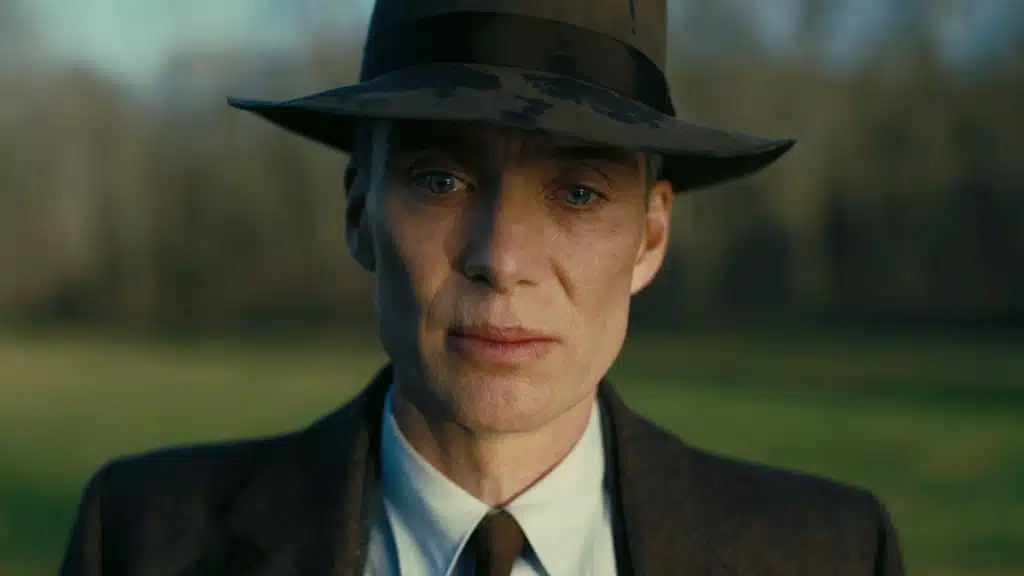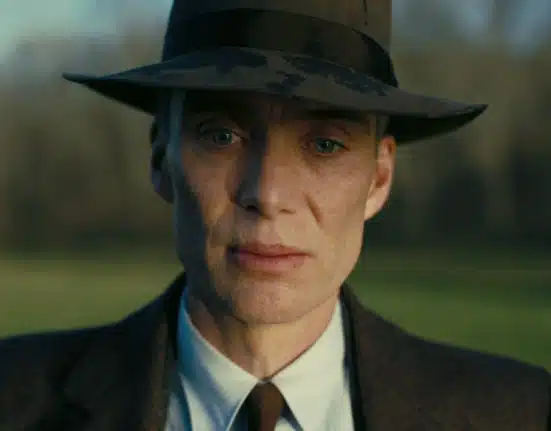★ ★ ★ ★ ★
WARNING: This review contains spoilers.
BRITISH-AMERICAN director Christopher Nolan is considered one of the leading filmmakers of the 21st century.
Known for his blockbuster hits like Man of Steel, Justice League, The Dark Knight, and Interstellar, to name a few, many fans and film enthusiasts have been anticipating his work with Oppenheimer, a tale that narrates how a hero fell victim to Washington politics plagued with deception and betrayal.
This biopic tells the story of American theoretical physicist and father of the atomic bomb J. Robert Oppenheimer.
Oppenheimer is a ruthlessly authentic, gripping storyline based on the biography American Prometheus: The Triumph and Tragedy of J Robert Oppenheimer by Kai Bird and Martin J Sherwin.
It has this dizzying way of slicing and dicing psychodrama, political betrayal, and scientific inquiry, packed into a three-hour long cinematic masterpiece that restates the history written and directed by the ingenious Nolan himself.
The epic biographical thriller film landed in local and international theaters on Wednesday and has been warmly welcomed by audiences and critics for its ingenious storytelling and stellar cinematography.

Courtesy: Universal Pictures
Oppenheimer at a glance
The film opens with an interrogation of the titular character, played by Irish actor Cillian Murphy.
He was accused of having hidden communist ties, among other things, which denied him his security clearance, a way for the government to silence him about its real agenda in utilizing nuclear weapons post-war.
As Oppie defended himself against a prosecution called upon by his foe Lewis Strauss, played by Robert Downey Jr., Nolan uses various splices of Oppenheimer’s life that create a hypnotic multi-tiered storytelling.
It takes its audience back to his days in Europe as a student and his time as a quantum physics professor in California in the 1930s.
The plot heavily revolves around his involvement in the Manhattan Project — the top-secret US program to build nuclear weapons in Los Alamos, New Mexico, that aims to create a bomb that would end the Second World War.
During the moments he spent at the university, Nolan exhibited how Oppie, a nickname given to the mind behind one of the most destructive weapons in history, is being haunted by the brave new world of quantum physics right before his consciousness.
Oppenheimer sees a phantasmagorical groove of particles, waves pulsating and aglow in vibratory bands of light that disrupt his mind, birthing the first atomic bomb.
And while the US government saw the potential of his invention and intended to drop it on Hiroshima, Japan, Oppenheimer fiercely stood his ground in preventing the nuclear bomb from being used again after his test run in 1945 called “Trinity”.
He was desperate to prevent the creation of more nuclear bombs because he felt it would lead to the world’s destruction.
In the film, he said using the nuclear weapon would create a horrific demonstration of why we could never do it again.

Courtesy: Universal Pictures
Oppie’s multi-layered madness
Oppenheimer’s brilliant recital would not be as effective if Murphy wasn’t on board. With him and his icy blue eyes being the center of almost every scene in the film, Nolan was able to show the physicist’s complex character arc.
Oppie is multi-layered and multicolored — the film navigates with him slipping through his old skin like a snake in the desert.
Once he is a cold prodigy and a humanist, he becomes a womanizer and an aristocrat, meddling with those in high society.
He is also a Jewish outsider who then becomes a consummate insider and then transforms into a man who invents nuclear weapons heartlessly and without an ounce of doubt, only to be backstabbed by the country he served and worked hard for.
Physicist Edward Teller (Benny Safdie) tells Oppenheimer he’s more of a politician than a physicist for his justification of how it is only righteous to bomb Hiroshima, saying, “Once it’s used, a nuclear war becomes unthinkable.”
But then he reconsiders the thought after seeing a vision of a photo-negative image of a woman with her skin peeling off because of the war device he created.
Nolan, meanwhile, shows a man who confidently but naively believes he could speak honestly and urge the US president to avoid the nuclear arms race.
But at the end of the film, Oppenheimer is a tragic and profoundly American hero who helped mold the contemporary world but fell victim to his country’s selfish greed.
Oppenheimer’s greatest tragedy was not being able to defend himself from the bogus accusations of his connection with the communist movement. It was the fact that he wasn’t able to save the future from his own invention.

Courtesy: Universal Pictures
How useful was this post?
Click on a star to rate it!
Average rating 0 / 5. Vote count: 0
No votes so far! Be the first to rate this post.
We are sorry that this post was not useful for you!
Let us improve this post!
Tell us how we can improve this post?






